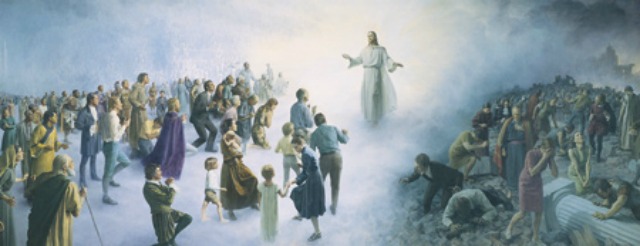Question
Dear Gramps,
Referring to a post on 19 July 2013, I wonder if we already know that those rising in the morning of the first resurrection are celestial beings. Why would a final judgment make sense? Why do we need to be judged by Christ at the end of the millennium if we already know where we will end up? I hope you will answer. Thanks.
Wilma
Answer
Hello Wilma,
Thank you for this question, and the best analogy I can provide is similar to graduating from High School, college undergraduate, or even graduate courses. When we go to school, a testing period before graduation, we already know if we will graduate. We are then informed of a formal graduation period where everyone who is graduating lines up and receives their reward for passing all the necessary courses and tests. Our final judgment, at least to me, is really no different. There is an informal knowledge and a formal meeting that finalizes our work and efforts, in relation to the atonement of Jesus Christ.
If we liken our final judgment to a court room the scenario is similar, the only difference is that we are standing before a perfect judge that we can not lie to like we could an earthly judge. When we go to court, the individual already knows if they are innocent or guilty. When we stand before God, I believe, we will already have a feeling of what body we have received, especially if we are resurrected during the morning of the first resurrection. The law first acts upon us, and then we are brought before a judge. An eternal law is already acting upon us also before we are brought before an eternal judge, along with our advocate Jesus Christ.
One minor change, our Father in heaven is our final judge, not Christ. Jesus Christ will be our advocate before the Father as we return and report our dealings upon earth. I truly love this scripture in the Doctrine and Covenants,
“Listen to him who is the advocate with the Father, who is pleading your cause before him—
Saying: Father, behold the sufferings and death of him who did no sin, in whom thou wast well pleased; behold the blood of thy Son which was shed, the blood of him whom thou gavest that thyself might be glorified;
Wherefore, Father, spare these my brethren that believe on my name, that they may come unto me and have everlasting life.” (Doctrine and Covenants 45:3-5) This confirms that Christ came to save, not condemn the world. (D&C 45:3-5)
Gramps







